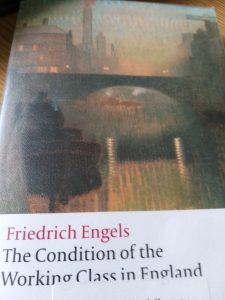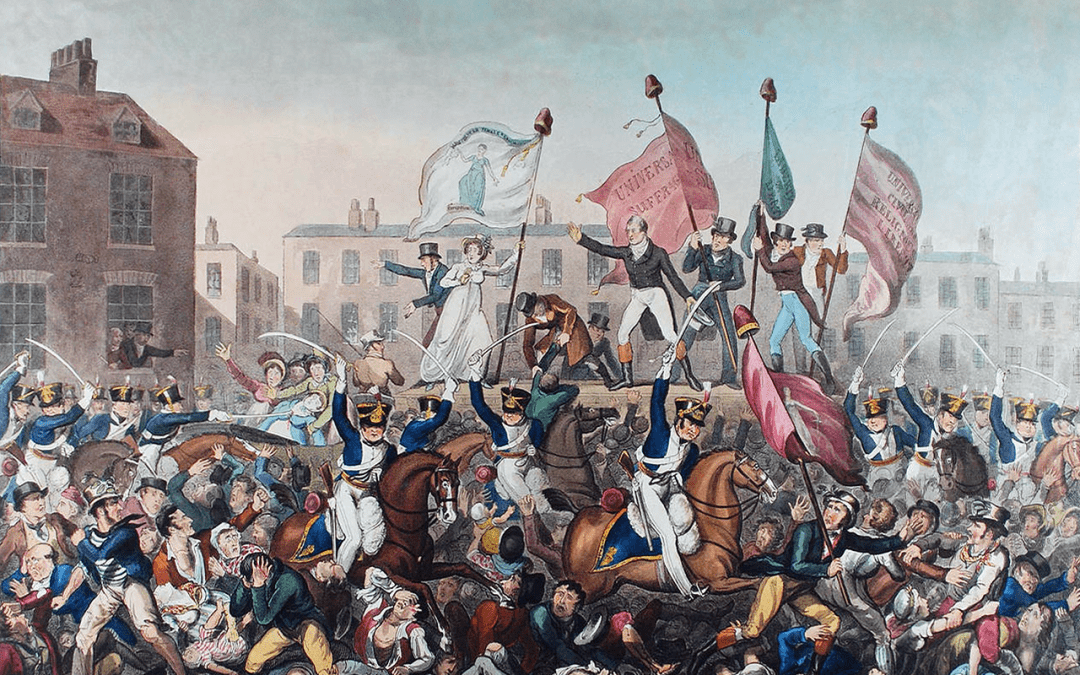Elizabeth was born in 1833 and by then Manchester was a radical hotbed. So, how did her young life encourage her to become a feminist? Well, actually the word feminist didn’t enter our language until the 1890s, but from her young days Elizabeth showed the desire to live her life as she chose. She had the strength of character that would sustain her through a lifelong fight for women’s rights.
She was born into a world of significant transition. For the first time ever, people were moving in large numbers from rural areas to the rapidly growing towns and cities. The Industrial Revolution was well underway. For some this meant growing wealth and the creation of a comfortable middle class. For many others it meant hard labour in dark, dangerous mills.
During Elizabeth’s life the world changed quickly in so many ways. As a young girl she travelled to Fulneck School (near Leeds) by horse and cart, probably travelling at about ten to twenty miles an hour. On her many trips to London as an adult she would travel by train, at speeds of up to fifty miles an hour. Everything about life was speeding up and being questioned.
Radical Manchester
By the 1830s the city was seen as being radical. Tensions existed between the wealthy mill owners and the workers. Since the Peterloo Massacre in 1819, Manchester was truly the centre of unrest and radical politics.
Her family were well connected with many of those involved in these early campaigns. During her young life, she would often be surrounded by adults having debates about the need for social and political change. Change that was demanded as people saw their wages reduce and the price of bread rise. Bread prices were pushed up by the hated Corn Laws. In her later life Elizabeth would recall the hard-fought campaign of the Anti-Corn Law League and the celebrations of the laws’ repeal.
So at home, debates raised her awareness of social issues. Stepping outside her door she was surrounded by poverty and will have known people who lived in fear of ending up in the workhouse.
Not only was her young world changing physically, how people thought about themselves was changing too as religion and society were shifting. During her young life the predominate view of women was that their place was in the home where they were subject to male dominance; where women had to work in the mills they were still completely dominated by their bosses (male, of course) and husbands.
A girl with a vision
From an early age Elizabeth was inquisitive and read widely; she soon decided that she wished to break out of the accepted role and be an independent woman. This was well outside accepted social norms, already she was thinking outside the box; throughout her life she was willing to challenge norms and break down barriers. Her bright intelligent mind would have suited her to study and university life. Despite her pleading, this was denied to her for one simple reason – she was female.
Elizabeth grew up hearing radical conversations, seeing women suffer dire poverty and personally experienced lack of opportunity because she was a girl. Little wonder that she became a spirited individual keen to challenge the laws of the country that kept women subservient and legally powerless.
Please get in touch if you would like to offer any comments, suggestions or ask any questions. Join me next time to hear about Elizabeth going to Fulneck Moravian School in Pudsey near Leeds.
Image of Peterloo Massacre: by Richard Carlile – Manchester Libraries, Public Domain.
Engels lived and wrote passionately about the conditions in Manchester, reflecting the life Elizabeth was experiencing.



Recent Comments